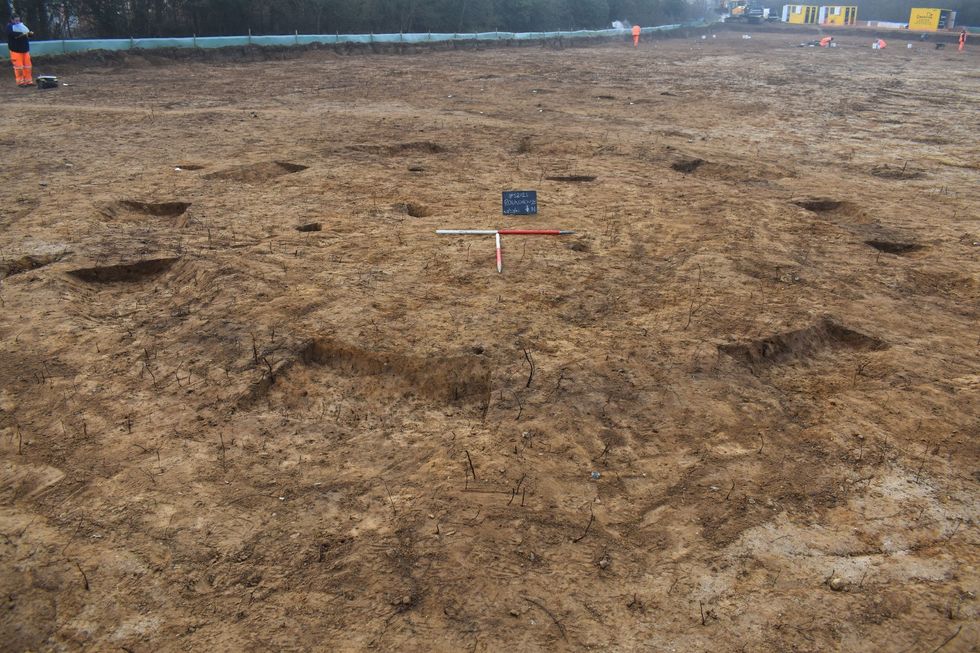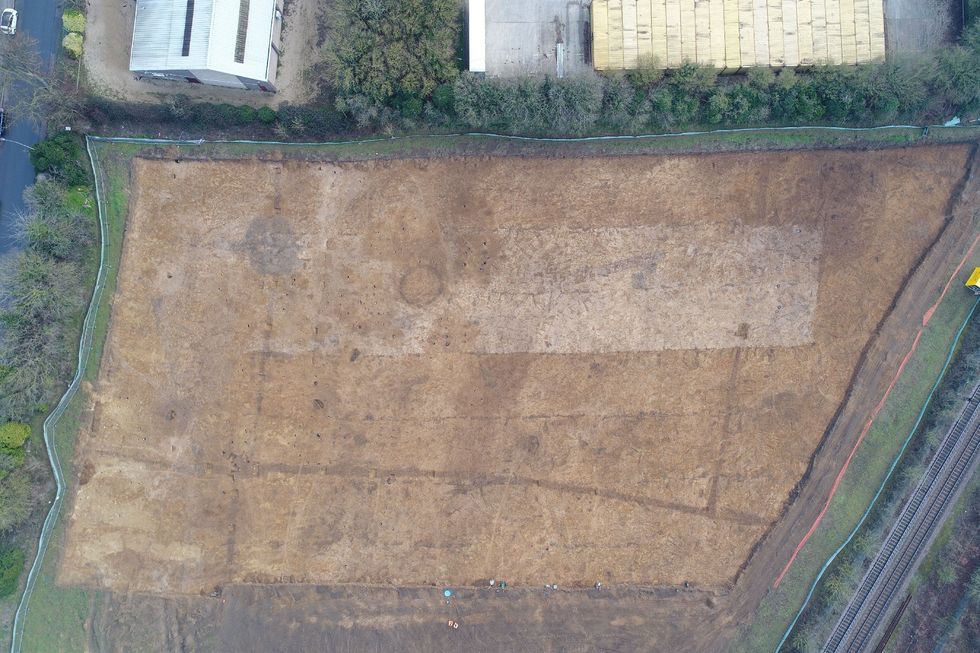Suffolk County Council said the discovery unveiled the region's 'unique history'
Don't Miss
Most Read
Trending on GB News
The remains of a 3,000-year-old Bronze Age settlement have been discovered during the construction of a new road in Ipswich.
Archaeologists uncovered a cremation cemetery with 18 burials, alongside "substantial" pottery items and two roundhouses during excavations for Europa Way.
The site is of "considerable significance" according to experts from Oxford Archaeology.
Suffolk County Council said the findings indicated a settlement with a mixed agricultural economy that included cereal production and cattle breeding.

The Bronze Age settlement was found by excavators
Suffolk Highways
The postholes of two roundhouses were found on the site near Bramford and Sproughton last year, ahead of work beginning on the £2.1m road in August. Numerous four and six-post structures and two ring gullies were also discovered during the excavations.
The settlement contained all the elements expected in a community to sustain life and bury the dead, according to senior project manager Chris Thatcher.
Evidence suggested it was an agricultural community, with sites of homes and fields indicating a well-organised landscape. Radiocarbon dating confirmed the cemetery dated from circa 1200 BC, containing 18 burials.
Other interesting objects included ceramics from circa 1150-800 BC, fragmented fired clay weights, and a clay spindle whorl used during yarn spinning.
LATEST DEVELOPMENTS

A view of the excavation site
Suffolk Highways
Cremation urns and a copper-alloy pin were also discovered at the site. Worked flints, including a rare example of a flint quern used for hand-grinding grain into flour, helped archaeologists determine the type of settlement.
The findings provide valuable insights into daily life in Bronze Age Suffolk.
"Some aspects of the settlement remains are of considerable significance in the wider regional context, especially the substantial pottery finds, the cremation cemetery and the way that the agricultural landscape was organised," said Thatcher.
"One distinctive feature of this cremation cemetery is how close it was to the buildings and daily life - the inference being that the inhabitants of the settlement were likely buried close by."
This proximity is part of an emerging pattern of Late Bronze Age burials, marking a shift from a preference for major cemeteries.
Archaeological finds from other periods were also discovered at the site, including small quantities of Neolithic residual pottery and worked flint.
An Iron Age gold coin was among the notable items uncovered during the excavations. The council noted there was already a "rich record" of prehistoric land around the River Gipping near Ipswich.
Across East Anglia, other Bronze Age sites have been found in Norwich, Cambridge and at Culford School in west Suffolk, though few have provided as much clear evidence as this discovery.
The Europa Way link road, which opened last month, connects Sproughton and Bramford Roads in Ipswich. The archaeological work was carried out before construction began on the new £2.1m road.
Philip Faircloth-Mutton, Suffolk County Council's cabinet member for environment, said: "Suffolk has once again revealed its unique history, and added another layer to our understanding of what life was like for previous generations in our part of the world."









